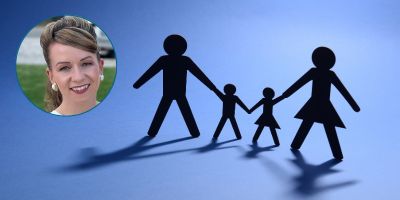Leading criminologists tackle issue of violence against women: new podcast

The “How to fix…?” podcast series brings together seven interdisciplinary panels of academics to discuss how their research could help to solve some of the world’s most pressing problems.
Food poverty, fast fashion and how to get to net zero are just some of the issues tackled in a ground-breaking series of podcasts being launched by the University.
In episode 3, School of Law academics Dr Anna Barker and Dr Sam Lewis address the subject of violence against women together with the Deputy Major for Policing and Crime, West Yorkshire Alison Lowe OBE.
As the Domestic Abuse Act 2021 continues to be enforced, and violence against women and girls (VAWG) is recognised as a national policing priority, policy-makers, practitioners, academics and service users must work together to condemn and tackle men’s violence and keep women safe.
In ‘How do we stop violence against women?’, Dr Anna Barker, Associate Professor in Criminal Justice and Criminology, and Dr Sam Lewis, Associate Professor in Criminology and Criminal Justice, talk about how research at the University of Leeds is helping to shape the future of policing, urban planning and services provision.
Domestic Abuse in Rural Areas
On average a woman is killed by a man every three days in England and Wales.
Drawing upon her Home Office-funded research into domestic abuse in rural areas, Dr Sam Lewis flags up specific barriers to victims in rural areas asking for help, such as problems of rural isolation, difficulties accessing services and the persistence of traditional gender roles. Dr Lewis’s research demonstrates that outreach work by domestic abuse service practitioners is essential, as well as highlighting the importance of acting as ambassadors in our own communities, to keep the conversation around domestic abuse alive.
West Yorkshire Initiatives
Alison Lowe OBE, the Deputy Major for Policing and Crime, confirmed that West Yorkshire Police has its own strategy to tackle Violence Against Women and Girls, that includes such initiatives as taxi marshals and a stalking coordination unit.
Alison also stressed the importance of allyship (involving men and boys in the conversation), preventative initiatives such as offering training in schools, to talk to young people about consent, online abuse and healthy relationships, as well as holding the police to account.
“Keeping women and girls safe is a top priority in West Yorkshire.
“It was fantastic to be part of such an insightful discussion on how, by working across our region, we’re tackling violence against women and girls.
“I hope this podcast inspires listeners to think about how they can help – because, together, we are all part of the solution.”
Alison Lowe OBE
Public Spaces
Women have a right to feel safe in public spaces.
Dr Anna Barker speaks about the ripple effect from domestic abuse out to the perceived threat of violence in public spaces. Her research with women and girls across West Yorkshire revealed that the daily hassles and intrusions to which women are subjected significantly restricts their activities and their use of public spaces. Across the UK, 27,000 parks give much-needed green space and access to nature for exercise, play, socialising and for relaxing. But her research shows that while parks appear to be open to all, there is still a long way to go until they are experienced as safe and welcoming places by women and girls. As many as four in five women in Britain say they don’t feel safe in parks after dark. In a country where six months of the year pass with fewer than twelve hours of daylight, that’s a significant restriction on women’s use of vital public spaces.
A collaborative project between West Yorkshire Combined Authority, West Yorkshire Police, Keep Britain Tidy, Make Space for Girls, Leeds Women’s Aid, the Vulnerability and Policing Futures Research Centre and the University of Leeds, arising from a recently completed study by Dr Anna Barker, has produced new Safer Parks Guidance to mitigate this.
As Dr Barker explains in the podcast, it all starts with engaging with views of women and girls to design parks better.
Taken together, these contributions suggest that strategies to tackle violence by individuals must be accompanied by broader social, political, economic and cultural changes, that are data-driven and facilitated through partnership working.
Listen to the How To Fix... series at Podmasters.
If you have been affected by any of the issues discussed in this episode or would like to know more, please contact:




